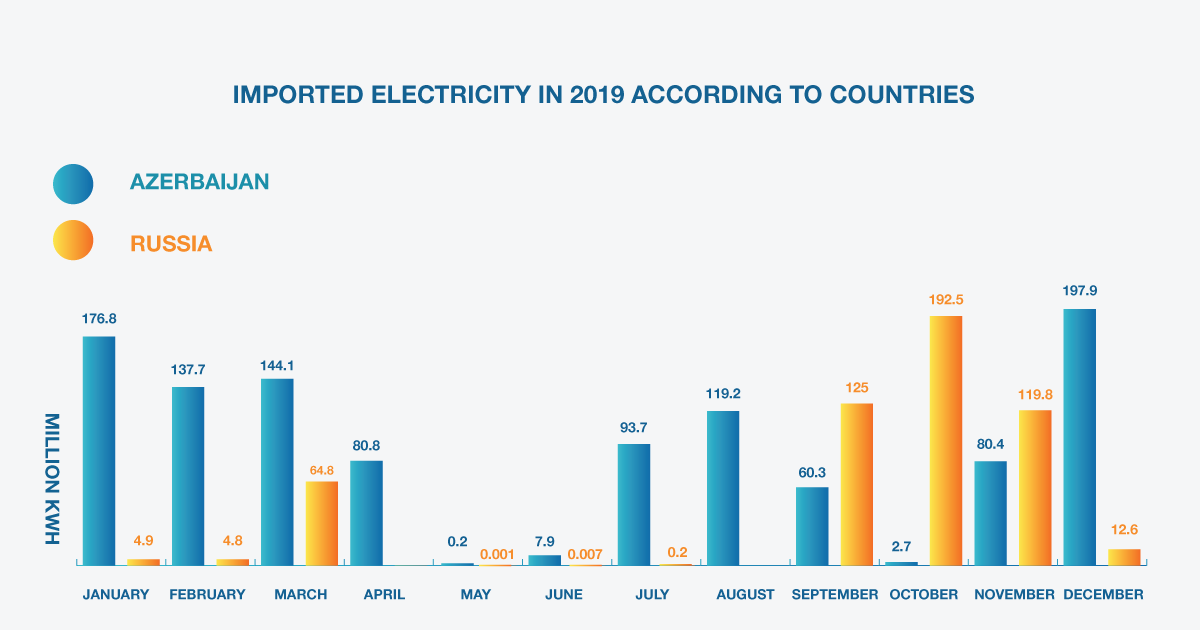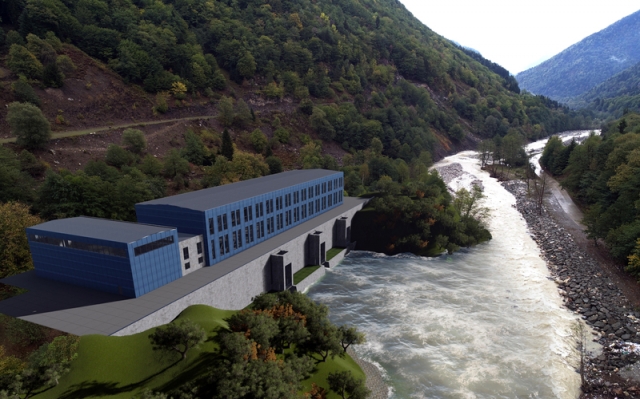Importance of Nenskra HPP in Reducing Electricity Import
The only way to reduce Georgia’s import dependency is to increase local electricity generation in the country. This is precisely what large-scale projects like Nenskra HPP aim to do.
How much electricity does Georgia consume today? How does it import and what would the situation be if large hydroelectric projects were implemented? The answers to these questions can be found in the figures and percentages below.
The decline in a generation and the increase in consumption have led to an increase of import. In January-February 2019, Georgia imported 324 million kWh electricity, and in January-February 2020, 526 million kWh, i.e. 62% more. As for the price paid on imports, it increased even further from $15.4 million to $26.4 million, i.e. 71% more.
In 2019, Georgia imported 1626.5 million kWh electricity. The source of import was two countries - Azerbaijan and Russia. See the dynamics of import volume here:

The graph would be different if Nenskra HPP had been operating in 2019. The annual estimated generation of the HPP is 1219 million kW/h. The amount of generation is seasonal and depends on the flow of water, as in the case of all hydropower plants. In Georgia, the “hydroelectric winter,” the period when the country is in need of electricity import, lasts from September to April.

So, conditionally replace the imported electricity with the electricity generated by Nenskra HPP and you can see how we would get a different picture. Check out the graph below detailing how the import dependency of Georgia would have looked in 2019, if Nenskra HPP had been up and running:

As for the annual data, the volume of electricity imported during 2019 amounted to 1626.5 million kWh, which, in case of Nenskra HPP's generation would have been only 785.35 million kWh. This means that the annual electricity import (for example, in 2019) would have been 48.3% less.
This scenario clearly shows the need to implement large-scale energy projects such as the Nenskra HPP, which is currently under construction in north-western Georgia.











